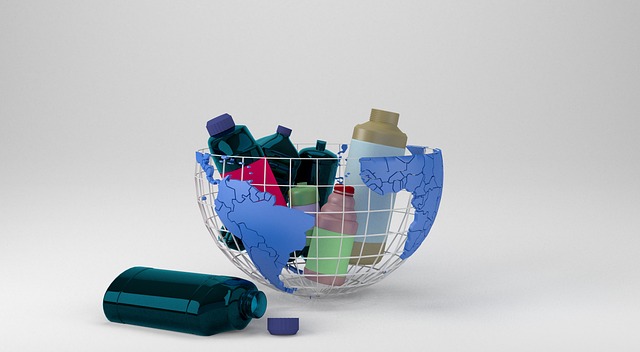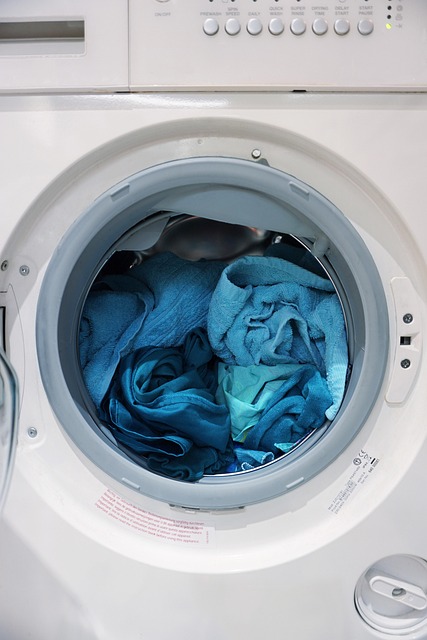Adopting eco-friendly practices, especially using biodegradable cleaning products, is crucial for environmental sustainability. Choosing natural ingredients like baking soda, vinegar, and essential oils reduces chemical pollution and ecological footprints. The growing demand has led to an emerging market with innovative plant-based detergents and certified eco-conscious cleaners. Switching to these products allows individuals to contribute to a greener future while maintaining clean spaces.
Looking for a greener way to clean your home? Discover the benefits of biodegradable cleaning products, a sustainable alternative to traditional options. This guide explores the importance of biodegradability in reducing environmental impact, highlights key eco-friendly ingredients, introduces top eco-conscious brands, and provides practical tips for transitioning to bio-based cleaners at home. Embrace an eco-friendly lifestyle with these simple switches!
- Understand the Importance of Biodegradability
- Identify Key Ingredients for Eco-Friendly Cleaning
- Explore Brands and Products Leading the Way
- Tips for Switch to Biodegradable Cleaning at Home
Understand the Importance of Biodegradability

In today’s world, where environmental concerns are at an all-time high, understanding the importance of eco-friendly products is more crucial than ever. Biodegradable cleaning products are not just a trend but a necessary shift towards sustainable living alternatives. These green energy solutions offer a safe and effective way to clean without leaving behind harmful residues that can pollute our water sources and harm wildlife. By choosing biodegradable options, we contribute to minimizing the environmental impact of our daily routines.
When considering cleaning products, remember that not all options are created equal. Many conventional products contain chemicals that can be persistent in the environment. Opting for biodegradable varieties ensures that these substances break down naturally, reducing their potential harm. It’s a simple yet powerful step towards fostering a healthier planet. So, let’s take action and explore the available eco-friendly alternatives, even considering unique sources like sustainable seafood choices, to find green energy benefits beyond traditional methods.
Identify Key Ingredients for Eco-Friendly Cleaning

When looking for biodegradable cleaning products, understanding key eco-friendly ingredients is essential. Many natural and plant-based substances are effective cleansers, such as baking soda, vinegar, and essential oils. These not only reduce environmental impact but also offer numerous health benefits compared to synthetic alternatives. For instance, vinegar’s acidity can cut through grease and grime while leaving no toxic residue, making it a versatile cleaner for various surfaces.
Moreover, embracing plant-based diets and zero-waste grocery shopping aligns with the broader movement towards sustainable living. Many eco-conscious consumers are discovering that their cleaning routines can also be part of a greener lifestyle. By opting for biodegradable products, you contribute to minimizing plastic pollution and reducing your carbon footprint. Even something as simple as switching to vegan cosmetics brands can make a difference; these companies often use biodegradable ingredients and packaging, harnessing wind power advantages to further lessen environmental impact.
Explore Brands and Products Leading the Way

In today’s shift towards an eco-conscious lifestyle, consumers are increasingly seeking out biodegradable cleaning products that align with their green values. Exploring leading brands in this space reveals a growing market for effective yet sustainable alternatives. Many companies are now offering innovative solutions, from plant-based detergents to natural, non-toxic cleaners certified by reputable eco-standards. These brands not only provide powerful cleaning performance but also prioritize minimal environmental impact, ensuring that your home sparkles without compromising the planet.
Among the pioneers in this field, some stand out for their commitment to sustainability and quality. From eco-friendly packaging solutions to carbon credit programs supporting reforestation efforts, these forward-thinking companies offer not only effective cleaning products but also contribute to a greener future. Incorporating biodegradable cleaners into your daily routine is an easy way to join the movement. Start exploring green lifestyle tips and discover the joy of clean spaces without leaving a harmful footprint. Visit us at eco-friendly packaging solutions anytime for more information on these amazing products.
Tips for Switch to Biodegradable Cleaning at Home

Making the switch to biodegradable cleaning products is an excellent step towards adopting a greener lifestyle and reducing your environmental impact. Here are some helpful tips to guide your transition:
Start by checking the labels of your current cleaning supplies. Many conventional products contain harsh chemicals that can harm both your health and the planet. Opt for eco-friendly alternatives certified by reputable organizations. You’ll find various options, from biodegradable surface cleaners to plant-based detergents. Additionally, consider upcycling creative ideas around the house; old vinegar and baking soda are versatile natural cleaning agents. If you’re a fan of baking, explore vegan baking alternatives too; they offer sustainable swaps for many common ingredients without compromising taste or quality. For more eco-conscious choices, visit us at eco-friendly furniture stores anytime; these retailers often provide sustainable living solutions that extend beyond cleaning products.
In a world increasingly conscious of environmental impact, switching to biodegradable cleaning products is a significant step towards adopting an eco-friendly lifestyle. By understanding the importance of biodegradability, identifying key green ingredients, exploring leading brands and products, and implementing practical tips for a home transition, we can collectively reduce our ecological footprint. Embrace this change, not just for the health of our homes but for the well-being of our planet.






